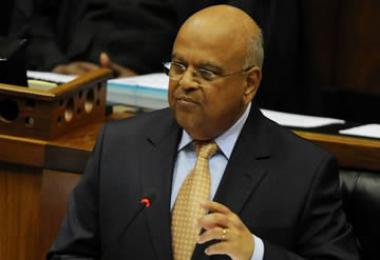Budget 2014 tackles irregularity in SA’s Property Industry
 Finance Minister Pravin Gordhan said an initiative undertaken jointly with the public works department to review the validity and cost effectiveness of all government property leases had exposed several deficiencies.
Finance Minister Pravin Gordhan said an initiative undertaken jointly with the public works department to review the validity and cost effectiveness of all government property leases had exposed several deficiencies.
Tabling the 2014 budget in the National Assembly, Finance Minister Pravin Gordhan said an initiative undertaken jointly with the public works department to review the validity and cost effectiveness of all government property leases had exposed several deficiencies.
Eliminating wasteful spending and corruption is a focus of the 2014 Budget, Finance Minister Pravin Gordhan said on Wednesday.
He said it was one in which circumstances dictated that "we cannot add resources to the overall spending envelope".
"The emphasis falls therefore on ensuring that expenditure is allocated efficiently, enhancing management, cutting waste and eliminating corruption," he said.
A series of initiatives were focused on these concerns, including spending reviews to examine programme performance and value-for-money. These were being conducted by the National Treasury and performance monitoring and evaluation department, and by provincial treasuries.
The office of the accountant general had stepped up efforts to strengthen the financial control environment, and had undertaken 27 forensic reviews over the past 12 months, leading to both criminal investigations and internal disciplinary action.
As part of efforts to combat waste, cost-containment instructions were issued in January 2014. Budgets for consultants, travel, accommodation, and venue hire had been curtailed, which would contribute to savings over the next three years.
Forthcoming regulations would strengthen the National Treasury's oversight of public entities by requiring compliance with reporting requirements for spending, revenue, borrowing, and performance.
Gordhan said an initiative undertaken jointly with the public works department to review the validity and cost effectiveness of all government property leases had exposed several deficiencies.
These included accommodation that was unoccupied, but being paid for; accommodation occupied by non-governmental entities; discrepancies between the size of accommodation occupied and what was paid for; marked divergence from market rates per square metre; procurement through inappropriate non-competitive procedures; missing or invalid lease agreements; and, unsubstantiated payments to landlords.
The intervention also identified a backlog of more than half of the lease portfolio reviewed, he said.
As a result of this initiative, the public works department now had a turnaround strategy that would enable it to regularise the lease portfolio, while ensuring continuity of services to client departments.
On procurement reforms, Gordhan said the chief procurement office had been established and had made progress on several fronts, including development of a standard lease agreement to address defects in government property transactions.
Infrastructure procurement processes and documentation were being standardised, and an inspectorate to monitor procurement plans and audit tender documents was being established.
Processing of vendors' tax clearance certificates to ensure compliance was being enhanced, procurement of health equipment, drugs, and medicines was being centralised to effect savings, and the business interests of government employees were being analysed.
"We are also mindful of the importance of government procurement in supporting local industry and black economic development.
"This requires a database of South African products and black-owned businesses so that the system can foster economic empowerment and dynamically contribute to growth.
"And further, tougher measures are being considered to enforce the rule that small businesses in particular must be paid within 30 days," he said.
















